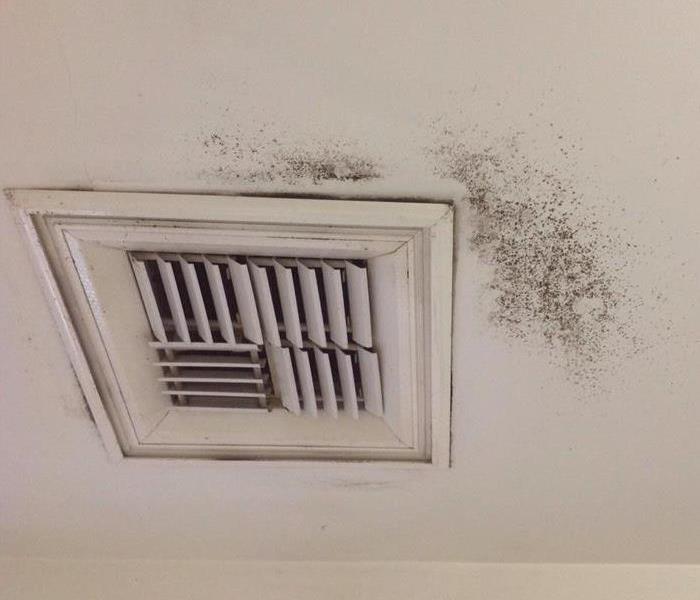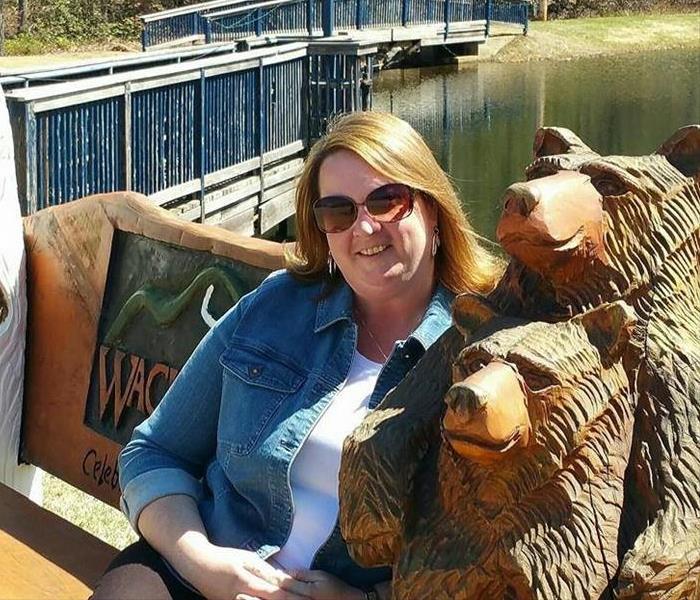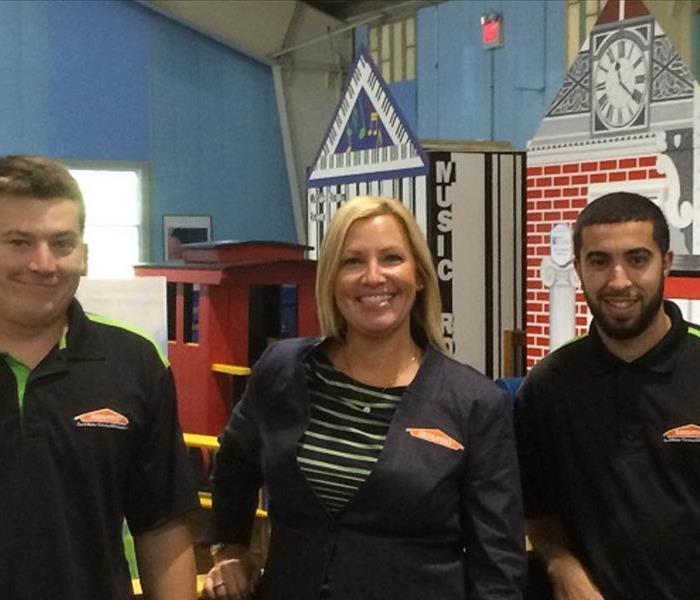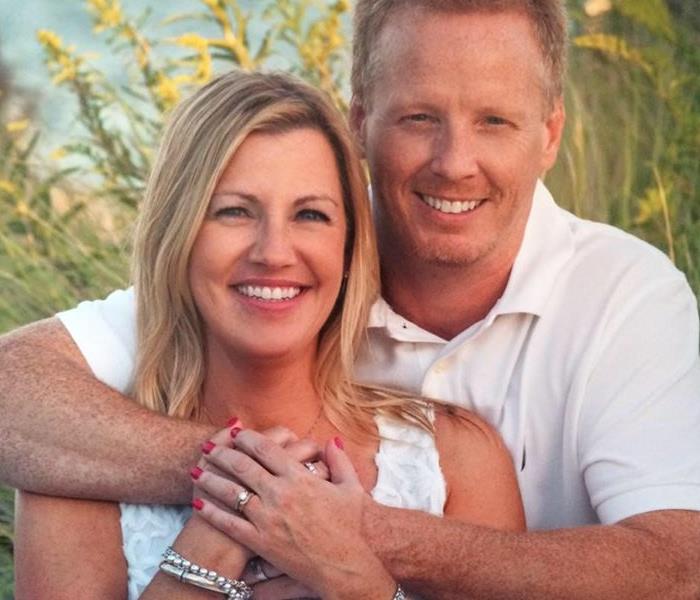Archived General Blog Posts
8 Indicators that Your Air Ducts Require a Professional Cleanup
3/15/2018 (Permalink)
 Air duct/HVAC vent cleaning service by SERVPRO of Upper Cape Cod and the Islands is the ideal choice due to their professionalism and efficiency.
Air duct/HVAC vent cleaning service by SERVPRO of Upper Cape Cod and the Islands is the ideal choice due to their professionalism and efficiency.
The air ducts and HVAC vents within your house are what make your homes breathe, so to speak. It ventilates the air within your house to bring in fresh air for you to breathe. Therefore, it has to be taken care of properly as any disruption in the vent system will lead to compromise in the indoor air quality. SERVPRO of Upper Cape Cod and the Islands knows that there is no hard and fast rule to when you should get the air ducts in your house inspected, cleaned or replaced. However, there are quite a few indicators that will point towards a much-needed air duct cleanup. Also, if you can’t remember the last time any professional cleaned the ducts, it may very well be time for another thorough cleanup.
Here are few indications that will help you in determining whether you need to get the air ducts cleaned or not:
Indications of Mold or Mildew
Take a closer look within the visible areas of the ductwork and check for indications of slime, mildew, mold or any other microbial growth. If you find any, it will have to be removed, cleaned and restored properly. Mold spores may cause health concerns in certain individuals, as these will be dispersed freely within the ductwork and the house every time you switch on the heating or air conditioning system. Get proper mold remediation from the skilled, experienced and professional crew of SERVPRO of Upper Cape Cod and the Islands.
Presence of Water Damage
Mold and mildew is always caused in the presence of moisture, and what causes moisture? The abundance of water! Check the air ducts and vents thoroughly and look for any leakages within or without. Any damaged surface will slowly seep in water and pool it in to cause water damage as well as mold damage. Never forget to clear out the source of water damage before beginning to cleanup its symptoms.
Rodent and Vermin Infestation
If you can clearly hear fluttering of wings, scampering of paws, or any other animal noises from within the air ducts, you will have to get help from professional cleanup services. Similarly call them in also if you can find evidence of animal droppings, nests, eggs, feathers, skin, etc. The best way to stop such invasion is to seal off entry and exit points of the ductwork with proper-sized meshwork.
Unpleasant and Foul Odors
Any kind of unpleasant, foul, offensive, rotten or musty odor that is pouring forth from the air vents needs to be checked. Usually, a musty odor is an indication of mold growth whereas other foul odors can be from a number of reasons such as dead animals, insects, vermin, etc. Ensure that your air ducts are free of any such sources of unwanted odors.
HVAC Airflow is Restricted
Another reason for getting the air ducts cleaned is because it greatly affects the efficiency of your air conditioning and heating system. A restricted airflow in the air ducts will cause the back-end machinery to overwork and even break down. There may be quite a few reasons for blockage of normal airflow including accumulation of dust, debris, vermin, insects, rodents, dead birds, bird nests, etc. Get the ductwork cleaned for maximum flow of clean and fresh air.
The Ductwork is Damaged
There are many kinds of ductwork installed these days including the conventional metal sheet ducts and fiberglass. Over the course of years, these may get damaged, broken, unsealed, affected by wear and tear, or even get gaping holes for one reason or the other. Inspect the ductwork, and if you see damage, get in touch with professionals to get it fixed. Any damage will increase the likelihood of indoor air quality being compromised.
Signs of Dust and Debris
If the air ducts in your house are visibly blowing out particles of debris, dust, cobweb, etc., then it is surely time that you get them cleaned. Any delay may elevate the situation and cause unwelcomed health hazards. It is natural for HVAC network to accumulate a good amount of dust, debris and even cobwebs over the years. Hence, if it has been years since the last air duct cleanup, call in the professionals as soon as possible.
Unexplained Health Issues
Because of poor indoor air quality due to any one of the reasons we mentioned earlier, you and your family may be prone to a number of health concerns. If there is a sudden appearance of unexplained illness, allergies, etc., it may be because of unhealthy, dirty, and affected HVAC vents. We, at SERVPRO of Upper Cape Cod and the Islands, advise that you get the ductwork inspected, and if required, cleaned professionally. The safety and health of you and your loved ones is a priority for us.
If you’re a resident of Cape Cod, MA and looking for a reliable air duct and HVAC vent cleaning service, then SERVPRO of Upper Cape Cod and the Islands is the choice for you. Get in touch now at (508) 888-5985.
The Blizzard reminds Cape & Islanders of the dangers of carbon monoxide
2/10/2016 (Permalink)
 Please remember to clean a path to the property's exterior exhaust pipes.
Please remember to clean a path to the property's exterior exhaust pipes.
Cape Cod, MA — The blizzard has created some health hazards that residents might not even be aware of: the need to dig out vents along the sides of home to prevent carbon monoxide buildups indoors is a critical task to do. Each year, carbon monoxide poisoning claims more than hundreds of lives and sends over 15,000 people to hospital emergency rooms across the country for treatment; many of the fatalities could have been avoided with the simple installation of a carbon monoxide alarm. When the temperatures drop, it is only natural to reach for the thermostat to turn up the heat or build a fire in the fireplace or wood stove to warm up the home. However, it is important to remember there are several everyday items that can put you and your family at risk, including gas-fired appliances and wood-burning fireplaces.
The high snow drifts block furnace vents and air intakes to some homes, predominantly those with newer high-efficiency furnaces. Those furnaces vent out the side of a home rather than up through the roof. Residents must clear snow from these vents and air intakes. If they are blocked, dangerous carbon monoxide will back into the home.
Some newer high efficiency furnaces have automatic shut-off’s that shut down the furnace when the vents are blocked. Keep a three-foot area clear around the vent and intake tubes outside to be safe.
Heating and dryer vents should also be cleared of snow to prevent carbon monoxide poisoning. We also want to remind residents to never run a generator or gas grill in the home, garage or other enclosed spaces. If your CO alarm sounds, immediately evacuate and call 9-1-1.
Onset Symptoms of carbon monoxide poisoning
More severe symptoms with prolonged exposure of carbon monoxide poisoning
- confusion and drowsiness
- fast breathing, fast heart rate, or chest pain
- vision problems
- seizures
If you believe you may be experiencing symptoms of monoxide poisoning, experts say to evacuate immediately and contact emergency personnel. Even with doors open, refrain from running your vehicle for extended periods of time, as garages with a door on only one side often do not provide adequate air flow.
Since monoxide alarms measure CO levels over time, the alarm will sound before an average, healthy adult would experience any symptoms. If you are not experiencing symptoms when the alarm sounds, please consider ventilating the home and contacting a service professional to check the CO level. The local fire department will send a team to check the home if you call to report the alarm sounding.
Halloween Safety is No Trick on Cape Cod & Islands
10/30/2015 (Permalink)
 We plan to keep Mackenzie safe this Halloween with these simple tips and reminders.
We plan to keep Mackenzie safe this Halloween with these simple tips and reminders.
Halloween is one of those holidays that is loved by children and adults…but for different reasons. I love the holiday because it arrives during the fall…one of my favorite seasons. I love the pumpkins, mums, and the other autumnal decorations. Children get excited about the holiday because they enjoy dressing up in costumes… becoming another character for a night. The only thing better than getting to dress up as somebody else is ending the night with a bag full of candy. Yup, doesn’t get much better than that.
I could grow nostalgic about Halloweens past, reflecting back on all of the fun and (and stress) of those days when my children were small and missing those early years. But instead of reminiscing, this year I am going to get to relive some of the fun….sort of. My granddaughter Mackenzie is going to celebrate Halloween and I get to bask in the glory of watching my daughter get her dressed up, teach her to say trick or treat, ask people for candy and after securing a bag full of the sweet confections, try to stop her from eating it all. Not quite two years old, Mackenzie is going to dress as a bumblebee and I assure you that she will be buzzing her way right into my heart.
This is such a fun holiday for children and a memorable one for adults but there are a few precautions we can and should take to make sure that it is not only a happy Halloween but a safe one, as well.
Tips for a safe Halloween
Make sure children’s costumes do not drag or hit the ground. Children tend to run rather than walk between houses.
Whenever possible, opt for face make up rather than masks. It can be difficult for children to see through the masks, especially after the sun goes down.
Do not let children under the age of 12 trick or treat alone.
Make sure children have some kind of a flash light or glow stick so that cars can see them. If possible, add reflective tape to their costumes.
When you are designing the costumes, take time to design the candy bags. Put some reflective tape on whatever container your children use to collect their candy. This will help to keep them seen when they are out at night.
The most popular trick or treating hours are between 5:30 p.m. and 9:30 p.m. Remember to be extra cautious when driving during those times and to keep an eye out for little trick or treaters.
Jack-o-lanterns with candles are a wonderful addition to any front door but, if possible, opt for the battery-operated candles available today.
Make sure your property is well lit so little feet do not trip over steps or other objects on the ground.
If you have pets, remember that chocolate is harmful to dogs. Try to keep your furry legged friends away from the door when the trick or treaters come by.
Most important of all, remember that dark chocolate is actually healthy for you. So please feel free to raid your children’s bags when they come home!
Happy Halloween from SERVPRO of Upper Cape Cod & the Islands.
It's Gratitude Time
9/25/2015 (Permalink)
Today, both the day and night are equal in length, otherwise known as the Equinox. To celebrate the changing of seasons and the beginning of Autumn and the Equinox which occurred this morning at 4:21 am, September 23rd I would like to share my gratitude and encourage others to do the same! I'll go first.
I'm grateful for...
My husband and best friend
Morning run with crisp autumn air
Dark roast coffee
My favorite restaurants
Watching the birds in the blue skies
Seeing how my work can sometimes change a person's life
Ok now it's your turn!
Love to hear from you.
Beth
Quick Hacks to Understanding Today's Language
9/18/2015 (Permalink)
While skimming through various social media platforms as well as some online news pages, I began to notice familiar words that now have new meanings. For instance, the word, hack—I have always considered that word to mean something negative—as in, “somebody hacked my Facebook.” Suddenly, it’s a great thing to do—“seven hacks to cutting credit card debt.” After researching the word, I learned that it is the shortened version of the word, life hack, which is defined as “a tip, trick, or efficient method for doing or managing a day-to-day task or activity.”
Here are some other words, phrases, symbols that now have new definitions and connotations as well as some abbreviations that have become a part of today’s language.
The symbol # is now referred to as hash tag and often refers to a tweet. Just ten years ago, it was called the pound sign and in the days before cell phones and iPads, we would draw that symbol on a piece of paper and play tick tack toe with a friend. But most businesses still refer to it as a pound sign—for instance when you call their customer service department and are told to press the pound sign if you wish to remain on hold for the next seven hours until a customer service representative can speak with you.
Remember when the word tweet referred to the sound that a birdie makes? We now call our home phone our landline and when it rings, we immediately check the television to see who is calling. Ninety-nine percent of the time it is a robo call—the new telemarketer.
Remember when a smiley face was a smiley face and not an emoji?
And then there are the abbreviations.
If you’re wondering what the letters IDK written in a text message from your child mean, I don’t know. No. Seriously. I don’t know. It’s a bit like, “who’s on first.”
Here’s breaking news to keep you updated on today’s abbreviations so that you are not using outdated phrases that are so last week. According to Facebook, Haha, followed closely by laughing emojis and hehe, has officially replaced LOL, which stands for laugh out loud.
Remember when teens were “instant messaging” one another on the “family computer” and using the abbreviation MOS—“Mom over shoulder,” to let their friends know they couldn’t “talk?” While that abbreviation has gone the way of the dinosaur and the desktop computer it was typed on, a new abbreviation—NSFW has taken its place. The abbreviation means Not Safe For Work, referring to material that should not be viewed while a person is sitting at their desk in the workplace. I am guessing the same generation that typed MOS is also responsible for coining the acronym NSFW.
It is interesting to see some of the new phrases and abbreviations that have evolved to become a natural part of our language and to consider what we will be saying—and not saying—in just a few years. Feel free to share some of your favorite new words and catch phrases.
Things That Frost My Cookies
9/11/2015 (Permalink)
There are certain things in life that though they are minor and inconsequential—irk us. They are called pet peeves—little annoyances that get under our skin. On occasion, I will complain to whoever is nearby about the irritation I just experienced but most of the time I simply keep my thoughts to myself. For instance, if a friend or business associate commits one of these faux pas, I let it pass and don’t say anything. I have a good friend and an associate that I greatly admire; they both use the word irregardless. Not a big deal, but it's not a word. Heck, right now spell check is highlighting that word in red to let me know I may have a misspelling here. Ninety percent of the time when these two people use the word, they really intend to use the word irrespective or regardless. But they don’t. They use irregardless. Well regardless of your thoughts about this word, here are a few more of my pet peeves—you know, the things that make me cringe!
People who misuse the words there, their, and they’re.
People who misuse the words your and you’re. And even worse, people who abbreviate the word “your” by spelling it “ur” and the word “you,” by spelling it “u.” And trust me, it’s even worse when they commit that error in a cover letter when applying for a job—round file!
People who drive slowly in the left lane.
Drivers who are too busy chatting—or worse texting—on their phone to pay attention to the road.
Drivers who stop at a yield sign rather than yield.
Drivers who don’t understand that the vehicles in the rotary have the right of way!
Drivers who cross over the parking lines, taking up two spaces in a parking lot —especially during the holiday season.
People who over share—I really don’t need to know that you are going into the bathroom to pee. Please let me use my imagination.
People who talk loudly on their cell phones in public places such as the grocery store. But, being the curious person I am, I will listen to the conversation and I don’t feel the least bit guilty about it.
People who leave dishes in the sink when the dishwasher is empty. And by people, I mean my husband and other members of the family.
When my husband takes my electric toothbrush off of the charger to charge his—and neglects to tell me.
Finding a coupon after it expires and it was actually a coupon I could use!
People who mistake being busy for having bad time management skills—there is a difference.
So there is my list of minor irritations. The great thing about pet peeves is that everybody has them, so please feel free to share yours!
Life On Cape Cod
8/21/2015 (Permalink)
 Welcome to my World!
Welcome to my World!
I consider myself lucky to have grown up on Cape Cod—Sandwich to be exact. I met my husband Bill at Sandwich High School and after we were married, we decided to raise our family in the same town where we grew up. It is familiar to us and we love being near the ocean. As true Cape Codders, we understand that there are certain expressions or activities that are unique to this particular region and to people who do not live here, “year round,” as we Cape Codders like to say, it can be a bit confusing or even perplexing. For instance, Cape Cod parents find it perfectly acceptable to teach and encourage our children to jump from bridges—well not the Bourne or Sagamore—but other local overpasses. In Sandwich, by the time children are 8 or 9, they have probably jumped from the Boardwalk Bridge at high tide. And by the time they have graduated high school, they have jumped from the overpass bridge at Scorton Creek. There are similar bridges in other towns on the Cape and Islands and we consider the activity of bridge jumping a rite of passage reserved for Cape and Island children.
Here are a few other expressions and quirks unique to the Cape and Islands.
A true Cape Codder is one who was born and raised on the Cape—even better if their parents and grandparents were as well. Anyone who was not born here is considered a wash ashore—even if they have lived here for 50 years or more!
Local Cape Codders know the best routes to take on a Saturday and Sunday in the summer to avoid the MidCape Highway. I would tell you those routes but then I would probably have to kill you. (Hint: we use the tunnel that travels under the Cape Cod Canal. You knew about that tunnel, right? )
True Cape Codders wont go grocery shopping on Saturdays in the summer in fear of how busy they are. We will, however, stand in a line a mile long at our favorite ice cream shop.
Local Cape Codders know the difference between Upper, Mid, and Lower Cape, and we are happy to extend our arm bent in the shape of the Cape to show you where we live.
Islanders (those from Martha’s Vineyard or Nantucket) refer to coming to the mainland as “going to America.” When Cape Codders travel over the bridge to the mainland, we simply refer to that as going “off Cape.”
Cape Codders have no problem navigating rotaries or roundabouts as they are now called, which I suspect is a PR strategy to reduce the fear tourists have of these never ending traffic circles.
Real Cape Codders live by the expression, On Cape Time, which means 15 to 20 minutes around the time I said I would be there. Cape casual is not just a clothing or interior design style—it’s a way of life.
Flip flops and boat shoes are a perfectly acceptable office attire.
Cape Codders wear shorts and sandals well into December and even January.
For a true Cape Codder like me, whenever I see the Bourne or Sagamore bridge, I know I am indeed home.
SERVPRO of Upper Cape Cod & The Islands Names Stephanie Decatur Sales & Marketing Manager
6/29/2015 (Permalink)
 Stephanie Decatur, Marketing Manager of SERVPRO of Upper Cape Cod & The Islands.
Stephanie Decatur, Marketing Manager of SERVPRO of Upper Cape Cod & The Islands.
For Immediate Release
Contact: Beth & Bill Russell
Phone: 774-238-2999
Email: Beth@SERVPROUpperCapeAndIslands.co
SERVPRO of Upper Cape Cod & The Islands Names Stephanie Decatur Sales & Marketing Manager
Cape Cod, MA (June 2015)…SERVPRO of Upper Cape Cod & The Islands announces and welcomes Stephanie Decatur as sales and marketing manager. Stephanie joined the team in June 2015 and will be covering Cape Cod, Martha’s Vineyard and Nantucket.
In this new position, Stephanie will heading up the sales & marketing division of SERVPRO of Upper Cape Cod & The Islands non-emergency services such as duct cleaning, carpet & upholstery cleaning, post construction cleaning, clean outs and janitorial services along with and promoting SERVPRO’s Emergency Ready Profiles for business and property owners. “Bill and I are excited to welcome Stephanie to our team! She brings a diverse background and expertise with her.” says Beth Russell, co-owner of SERVPRO Upper Cape Cod & The Islands.
Decatur brings over 15 years of sales, marketing and business experience to her new role. Former positions include: director of sales, marketing & revenue management for Hostmark Hospitality Group, director of sales and marketing for Laquinta Inn Downtown Chattanooga, marketing and sales manager for Burroughs & Chapin/Broadway at the Beach and marketing, sales & convention services coordinator for Sands Resorts. Stephanie’s qualifications consist of a strong sales background in the hospitality industry, business development, revenue management, and operations management.
“I am thrilled to be part of the SERVPRO team! My entire career has been spent in the marketing & sales industry and I look forward to continuing that tradition by providing our neighbors, friends and community with the best service solutions around!” comments, Decatur.
SERVPRO specializes in Residential and Commercial Restoration Services and is known nationwide as an industry leader. SERVPRO of Upper Cape Cod & The Islands employees are all trained and certified in all aspects of emergency and non-emergency services.
Your commercial property’s appearance speaks volumes to your clients. So when the need arises for professional cleaning or emergency restoration services, SERVPRO of Upper Cape Cod & The Islands Professionals help make it “Like it never even happened.”
Named Board President of the Cape Cod Children's Museum in Mashpee
7/12/2013 (Permalink)
 The Cape Cod Children's Museum is located in Mashpee
The Cape Cod Children's Museum is located in Mashpee
As a Native Cape Codder, parent of three and soon-to-be Grandmother and local business owner I feel the responsibly to support The Cape Cod Children’s Museum located in Mashpee to thrive in the landscape of the community as a vital and strong Non-Profit for all residents of Cape Cod, Nantucket and Martha's Vineyard to enjoy for years to come. And for these reasons, I accept the responsiblity and honor of becoming Board President.
 Air duct/HVAC vent cleaning service by SERVPRO of Upper Cape Cod and the Islands is the ideal choice due to their professionalism and efficiency.
Air duct/HVAC vent cleaning service by SERVPRO of Upper Cape Cod and the Islands is the ideal choice due to their professionalism and efficiency.





 24/7 Emergency Service
24/7 Emergency Service




